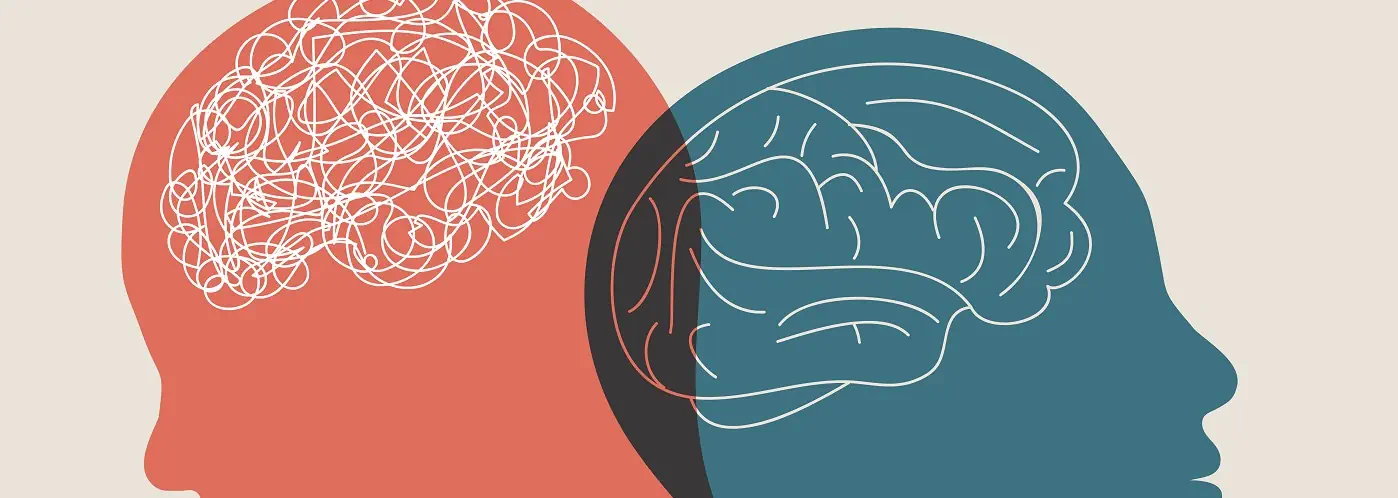
A study published in 2015 by the Malaysian Ministry of Health identified that mental disorders in adults were about 29% prevalent in the country. (Source: NCBI)
With lives getting stressful, the occurrence of psychological disorders is increasing by the day. Let us learn more about these disorders and their classification.
Psychology involves an integrated study of the human mind and behaviour, and its response to circumstances. Psychology makes use of various branches of science, including medical science and social science. It combines psychological theory and clinical practice to relieve/prevent various mental health conditions.
Psychological treatment (also known as psychotherapy) is carried out by specialists who talk to a patient about their thought, emotional and mental concerns, and traumas. These specialists are called psychologists.
Various factors may influence a person’s mental health. These include:
Depending on a patient's requirement, psychology uses specialised techniques like psychotherapy, meditation, hypnotic therapy, relaxation techniques, and counselling.
Psychologists often work closely with psychiatrists, who prescribe the necessary medications that a patient may need along with psychotherapy.
These professionals help diagnose and treat various psychological disorders and mental health diseases in patients. Clinical psychologists are often trained in various techniques like counselling, psychotherapy, hypnotherapy, group therapy.

Following are some of the most notable psychological conditions that require specialised help:
Depression is a common mental health condition. According to an NCBI study regarding depression and anxiety occurrence within the Malaysian population during the third wave of COVID-19, 25.1% individuals had severe depression, whereas 18.7% had mild depressive symptoms.
Common symptoms include:
Left untreated, it may progress to acute depression and may need multiple treatment methodologies like counselling, therapy, and medication.
It may be noted that certain medical conditions like a deficiency in vitamins, hormonal imbalance, brain tumours, etc may also be the cause of depression.
It is defined as a feeling of fear or panic that is hard to get over and interferes with day-to-day decision-making and work performance. Anxiety disorders have been broadly classified as:
The exact cause for anxiety to get beyond normal levels in people is unknown. However, reasons like traumatic childhood events, family history of mental health disorders, and having some health conditions could increase the risk.
Identifying signs include:
A thinking pattern that is unhealthy and affects a person’s normal social functioning may fall under a personality disorder. These may impact the daily functioning, decision-making, and relationships of the affected people.
Different personality disorders show different symptoms. However, often, the symptoms may be confusing and hard to classify under one disease. It is recommended to visit a psychologist if you or your loved one is suspected of having a personality disorder.
Other than these, there are various other classifications of personality disorders like Avoidant personality disorder, Narcissistic personality disorder, Dependent personality disorder.
Addictions happen when there is an extreme response towards a substance use or a particular behaviour. It is a chronic brain condition and can be attributed to genes, emotional state, or even environmental conditions.
Substance addictions include those towards alcohol, caffeine, or certain drugs that give a high. Behavioural addictions include gambling, video gaming, certain sexual behaviours etc.
Notable signs are:
These disorders are characterised by sudden and impulsive outbursts or aggressive behaviour that is not proportionate to the situation. Road rage, throwing objects, frequent indulgence in physical fights are some examples.
Mental disorders that lead to unhealthy eating habits are classified as eating disorders. Some common ones include:
Signs and symptoms include:
Post-traumatic stress disorder (PTSD) is a condition triggered in some people who have witnessed a particularly traumatic event. It may even start within a few days of the event or much later in life.
Symptoms include:
This is mostly a state of worry that one is unable to control with reason. It can be short-term (acute stress) or long-term (chronic stress).
Chronic stress conditions may show symptoms like:
Psychologists usually start by talking casually to a patient (or, in some cases, their loved ones) to understand their mental state. This is sometimes done through specifically tailored questions. Other diagnostic techniques may include tests to rule out a physical health condition, and tests for screening drugs.
Psychologists use various treatment techniques (or a combination of a few) to treat a patient. The treatment may differ on a case-to-case basis.
Psychological disorders have often been considered a taboo topic for discussion. Most patients (and even their loved ones) avoid disclosing these issues to a doctor, which causes the problem to develop into a chronic condition.
It is advisable to consult your psychologist when the symptoms are mild. Overall, there needs to be an acceptance that psychological issues are normal and treatable through the right approach.
Make an appointment with a psychologist at your nearest Gleneagles Hospital.
Mental disorders in Malaysia, Available at
https://pmc.ncbi.nlm.nih.gov/articles/PMC8554924/#:~:text=The%20burden%20of%20mental%20disorders,%25%20CI%2027.9%E2%80%9330.5).&text=This%20is%20a%20threefold%20increase,prevalence%20rate%20identified%20in%201996
Mental disorders, WHO, Available at https://www.who.int/news-room/fact-sheets/detail/mental-disorders [Accessed on 26 February 2022]
Mental illness, symptoms, and causes, Available at https://www.mayoclinic.org/diseases-conditions/mental-illness/symptoms-causes/syc-20374968 [Accessed on 26 February 2022]


Wait a minute